Zoe Atkin and Finley Melville Ives both crowned World Champions in Engadin, Switzerland on a historic day for halfpipe skiing. With a perfect pipe and ideal weather the stunt ditch experts threw down one of the most progressive contests in history.

Event News
luke’s tripping
Zoe Atkin and Finley Melville Ives boost their way to World Championships wins
The Women
It was China’s sixteen-year-old Zihan Chen who was the first to put a complete run with lots of good elements. She linked right and left switch hits and her grabs were consistent. Her lead was short-lived however, as Svea Irving dropped in next. Despite only having one switch hit – and that being a switch left 360 mute – Svea jumped into first place as the judges rewarded her amplitude over the lack of variety. She would put down an almost identical run on the second pull, with some questionable grabs and a loss of amplitude in the middle of the run. She would end the day in fifth place with two identical scores.
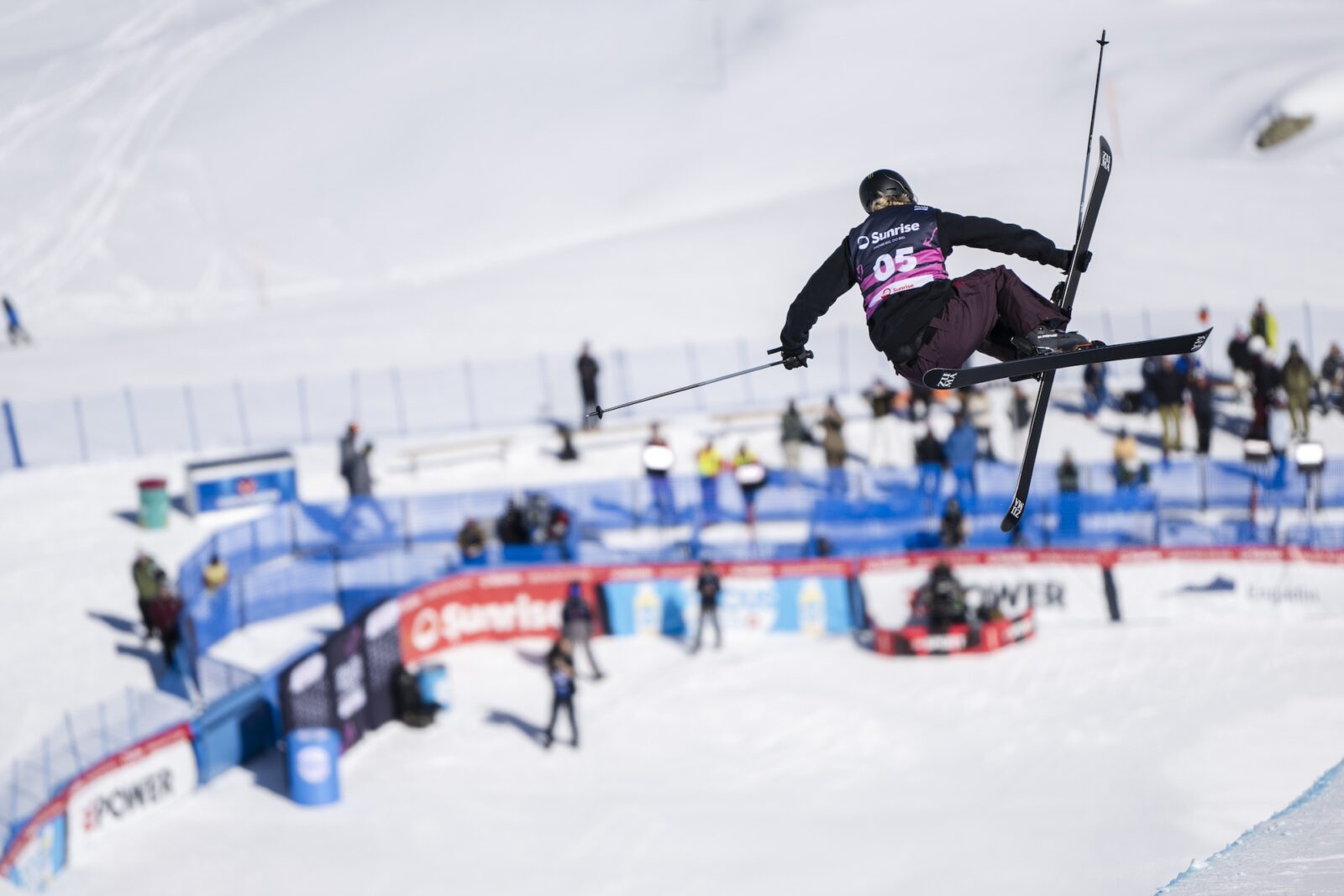
Rachael Karker went even bigger than Svea, linking massive back-to-back 900 japans at the top and went into first place with an 86.25. Her grabs were short but again the judges paid the amplitude. She would be unable to improve in her second run, immediately missing the first japan on the right cork 900.
Cassie Sharpe’s first run had all the ingredients of a winning run with back-to-back 900s at the top and both way 1080s in the run. Her first attempt was only good enough for a 75.75 as she missed multiple grabs. She would clean it up for run two, grabbing with much more authority than before. She downgraded a switch left 720 to a 360 with a mute grab as it was apparent the judges were penalising the missed grabs. This strategy worked as her score massively improved to an 88.00 and second place for the time being.
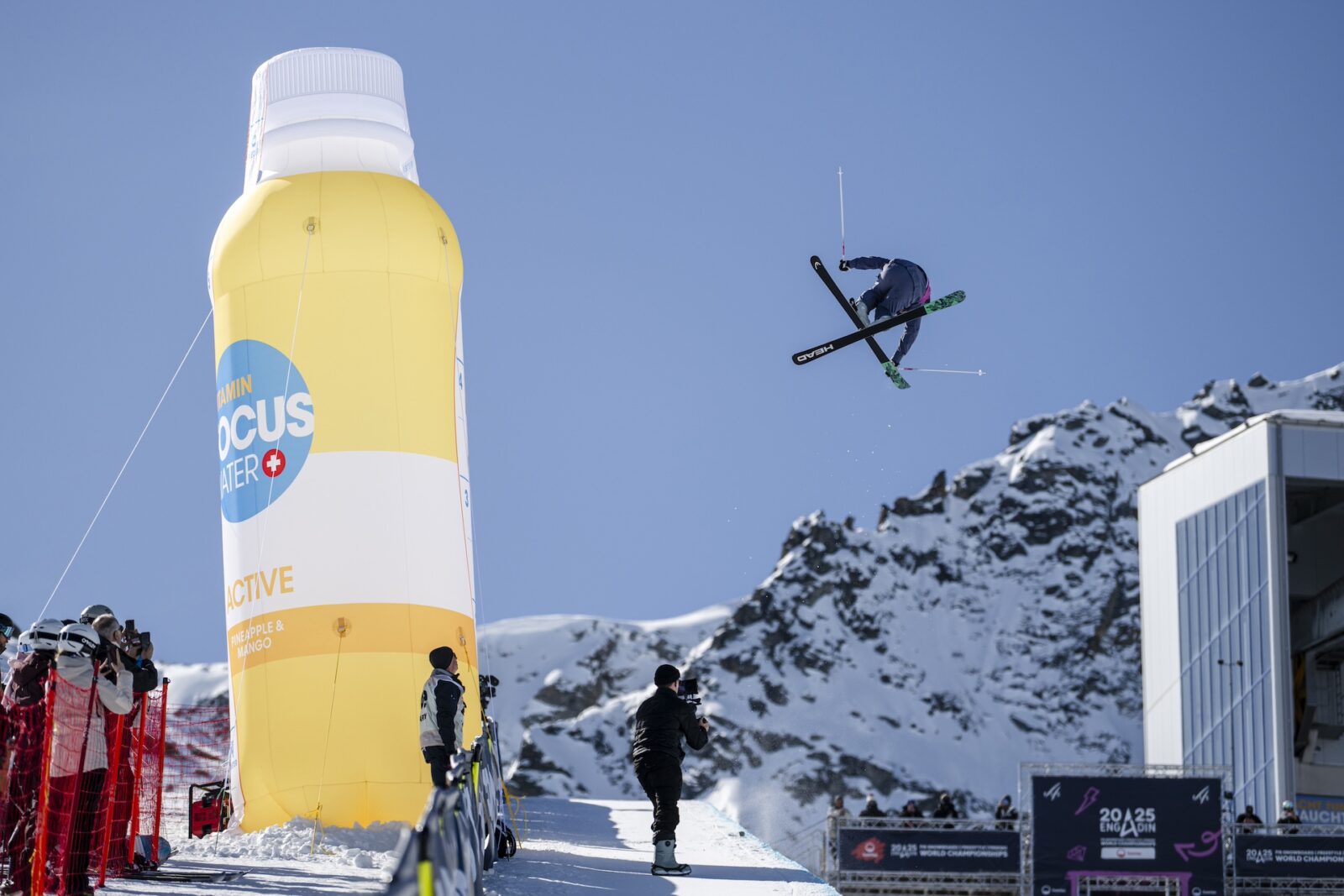
It was Fanghui Li who would finish the first run with a commanding lead. Taking the advice from her coach at the top to reign in the run, play it safe and not go too big, Fanghui put down the most technically difficult and complete run of the morning. She linked switch right 900 cindy and switch left 720 japan in the middle of her run without losing amplitude – the most difficult combination in the field. She clearly grabbed every trick, holding onto the ski for large parts of the rotation – unlike some touch grabs from the other riders. Unable to ignore the difficulty, variety and execution – despite her only just above average amplitude – the judges gave it 90.25 and first place.
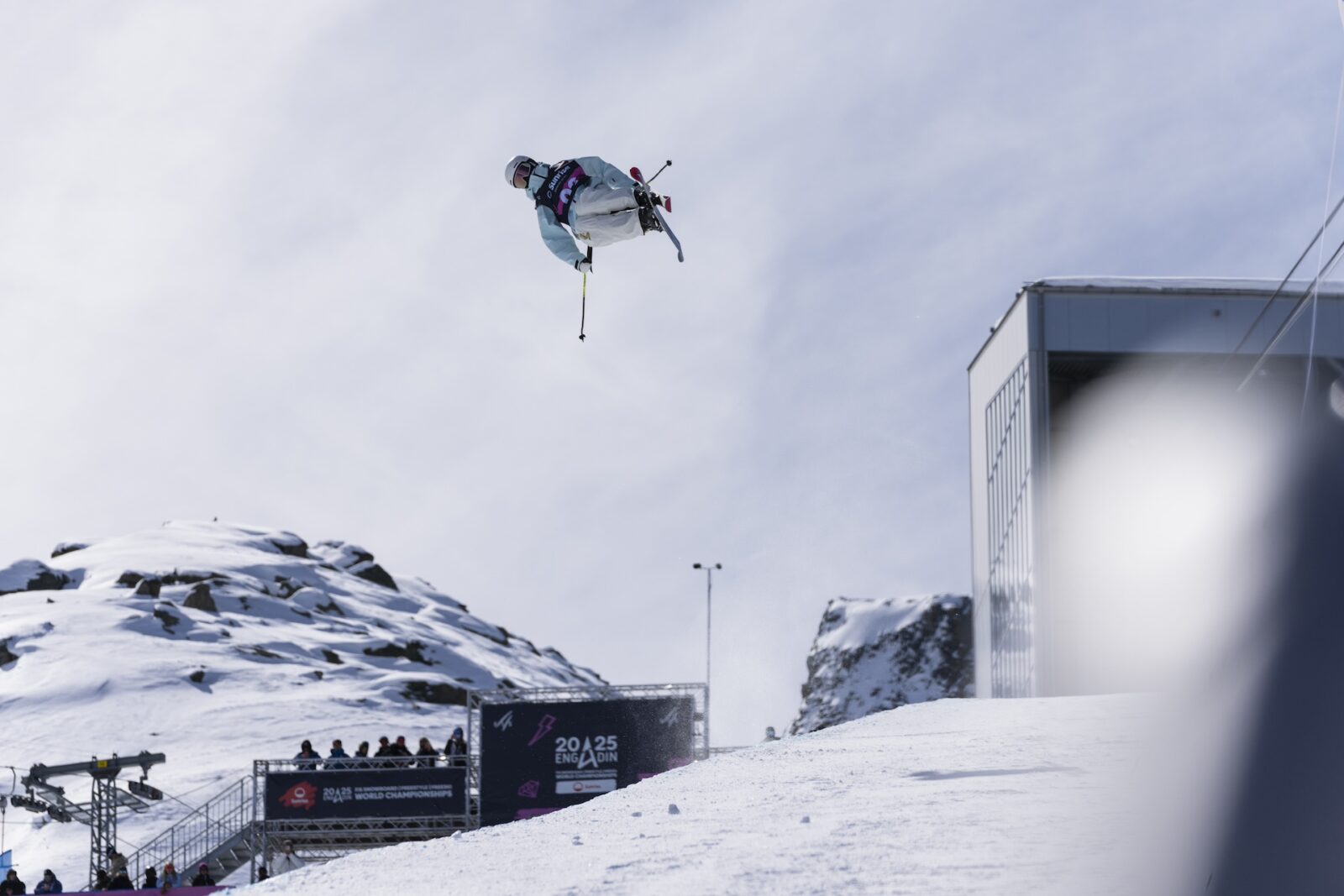
Zoe Atkin had dropped her first run, crashing on a massive left alley-oop 540 high mute. She left nothing out in the pipe on her second run going as big as any female rider has ever gone. Her first left 540 mute is as big as many of the guys go and she manages to maintain good amplitude all the way through the run, even on the both-ways switch 720s. Her grabs are the most defined of anyone as well, choosing to add variety into that element of her run by grabbing two lead blunts, two high mutes and both japan and lead japan. The judges rewarded Zoe’s amplitude and execution of difficult grabs over Fanghui’s technicality and put her into first place with a 93.50.
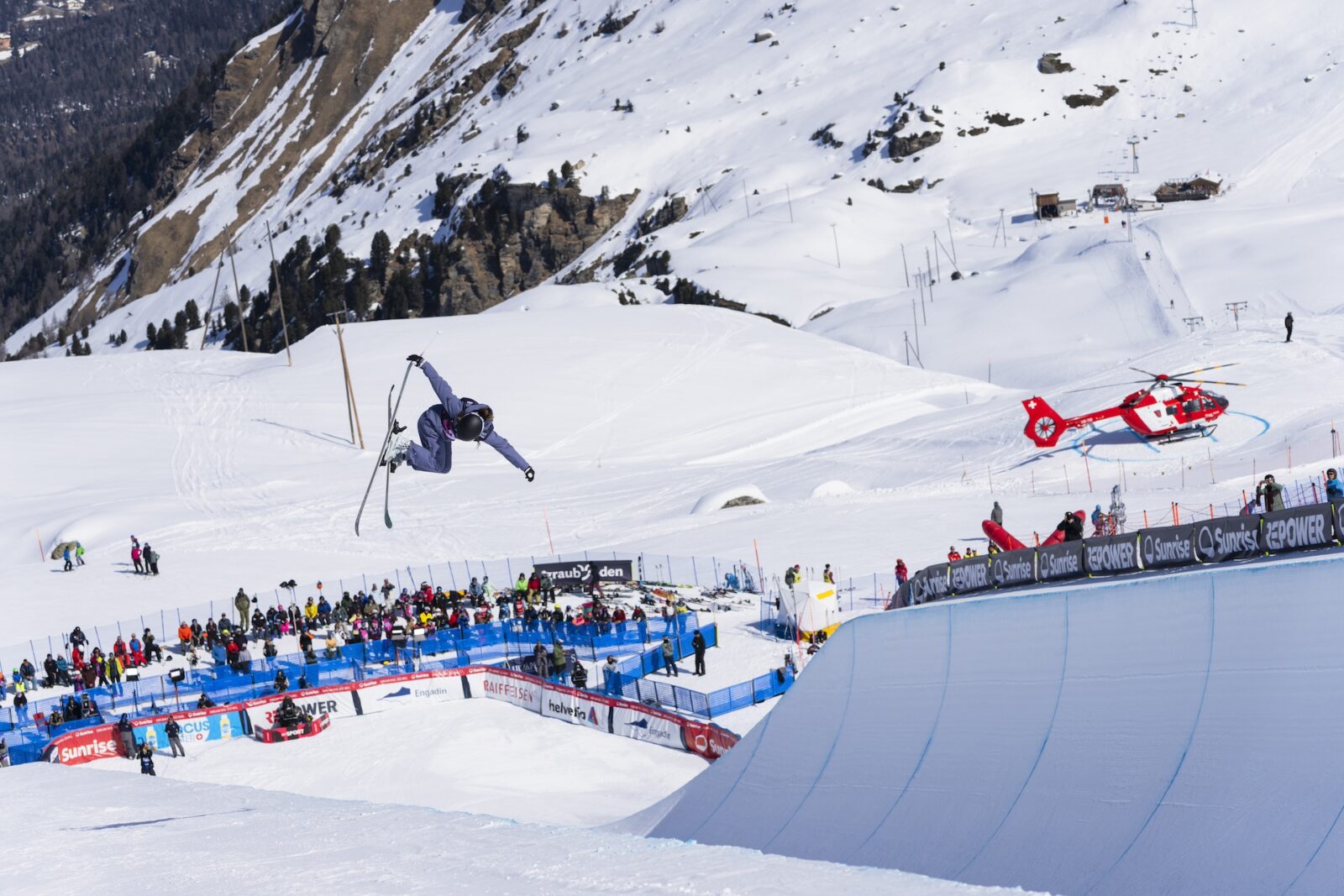
Fanghui would be last to drop and presumably was not going to play it safe like the first run. She went much bigger than before and added a right 1080 safety to the middle of the run. But in the eyes of the judges, it was just not enough to match Zoe’s amplitude and grab variety. She would score a 93.00, which improved, but not by enough to take the top spot.
Once she realised what had happened, Zoe broke out into tears of joy and went tearing around the finish area in search of her family and friends, clearly overjoyed.
“I had a lot of mental blocks so I’m really proud of myself for working through that. Then to be able to land it in my second run, with all the pressure on – oh my God – and to become World Champion, it means so much to me.”
Final women’s podium: Zoe Atkin in first place, Fanghui Li in second place and Cassie Sharpe in third.
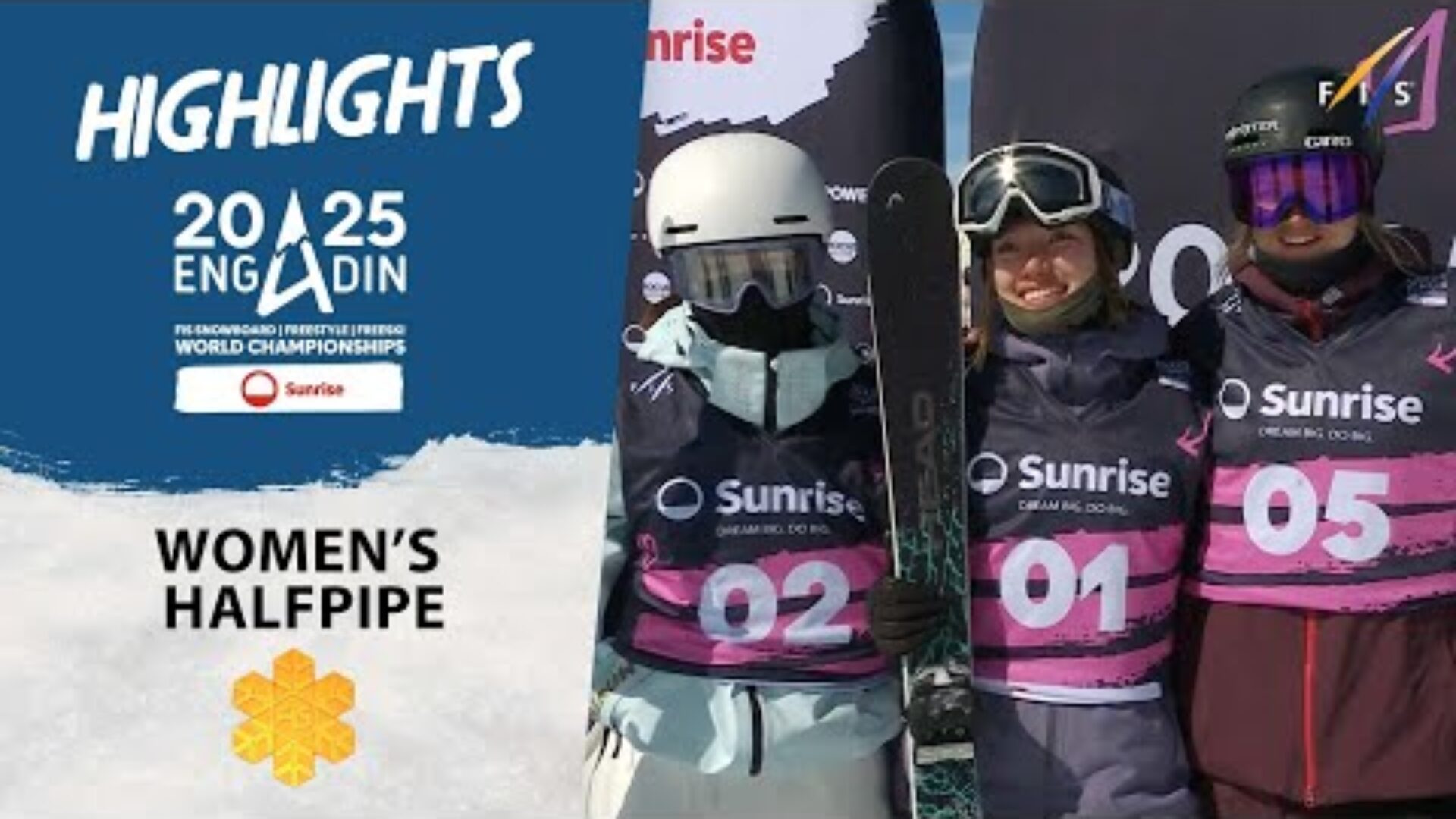
Women's Halfpipe World Championship Results
| Place | Name | Country | Score |
|---|---|---|---|
| 1st | Zoe Atkin | GBR | 93.50 |
| 2nd | Fanghui Li | CHN | 93.00 |
| 3rd | Cassie Sharpe | CAN | 88.00 |
| 4th | Rachael Karker | CAN | 86.25 |
| 5th | Svea Irving | USA | 83.25 |
All results on FIS.com
The Men
Half way through the first run, the Canadians had a five place lock-out at the top of the standings, led by Brendan Mackay with a score of 86.25. His run would have been good enough to take the win only a couple of years ago, but such is the pace of progression at the moment in halfpipe skiing, a mostly clean run with four-way doubles – including a double cork 1620 – is only good enough for seventh place, apparently.
Now something of a lost art, Henry Sildaru is the only rider currently competing in all three formats and he is no slouch in the pipe. His unique run includes a switch right single cork 1260 stale and a perfect left double cork 1260 blunt. As you would expect from a slopestyle skier, his grabs are long and well defined. He was the first to upset the Canadian top five by going into first after his first run. He would fall on his second, however and would slip down to fifth place once the heavy hitters started lacing runs.
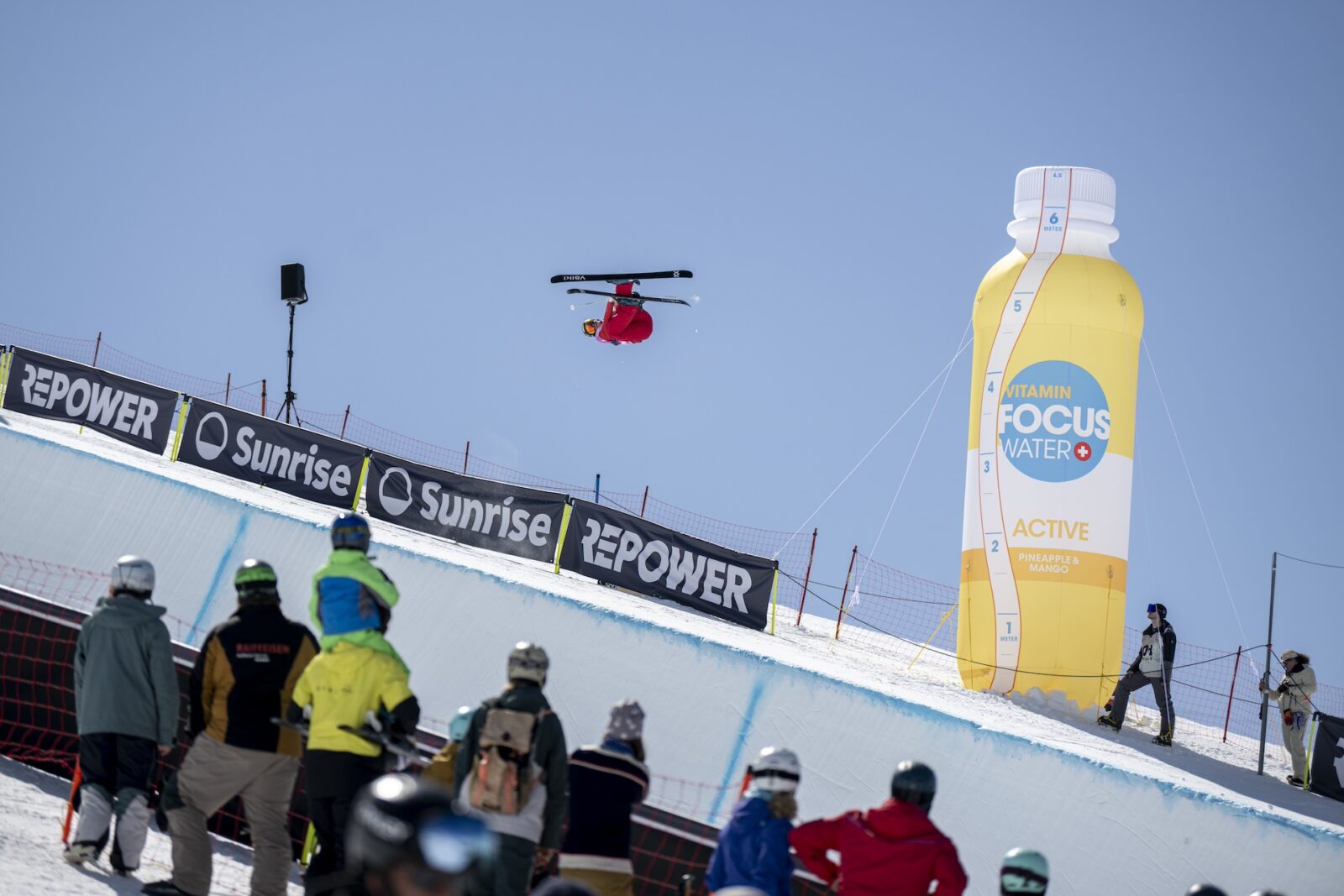
Hunter Hess’s binding seemed to let him down on run one, giving up on a fairly routine landing. He made up for it in run two and put down one of the runs of his life. He added a left double cork 1620 japan to the middle of his run and definitely tweaked the reverse mute on his switch right 1080 – which often gives him trouble. He went above Henry’s run with an 89.00.
Alex Ferreira would go into first in run one with a score of 92.50. It was a huge run that included both ways double cork 1620s and both ways switch double cork 1080s. The only thing to be picked apart about the run was that some of the grabs were quite short and he had to open up on the left 1620 cindy.
Having qualified in second, the sixteen-year-old Kiwi, Luke Harrold had potentially the most difficult run out of the field. He links back-to-back double cork 1620s at the bottom and back-to-back switch alley-oop double cork 900s at the top of his run. The only thing Luke potentially misses occasionally is amplitude. On this occasion though, he had to squat out his first 1620 meaning his grab suffered on the second one. It was good enough for second, just behind Alex – who is almost double his age – with a 90.75.
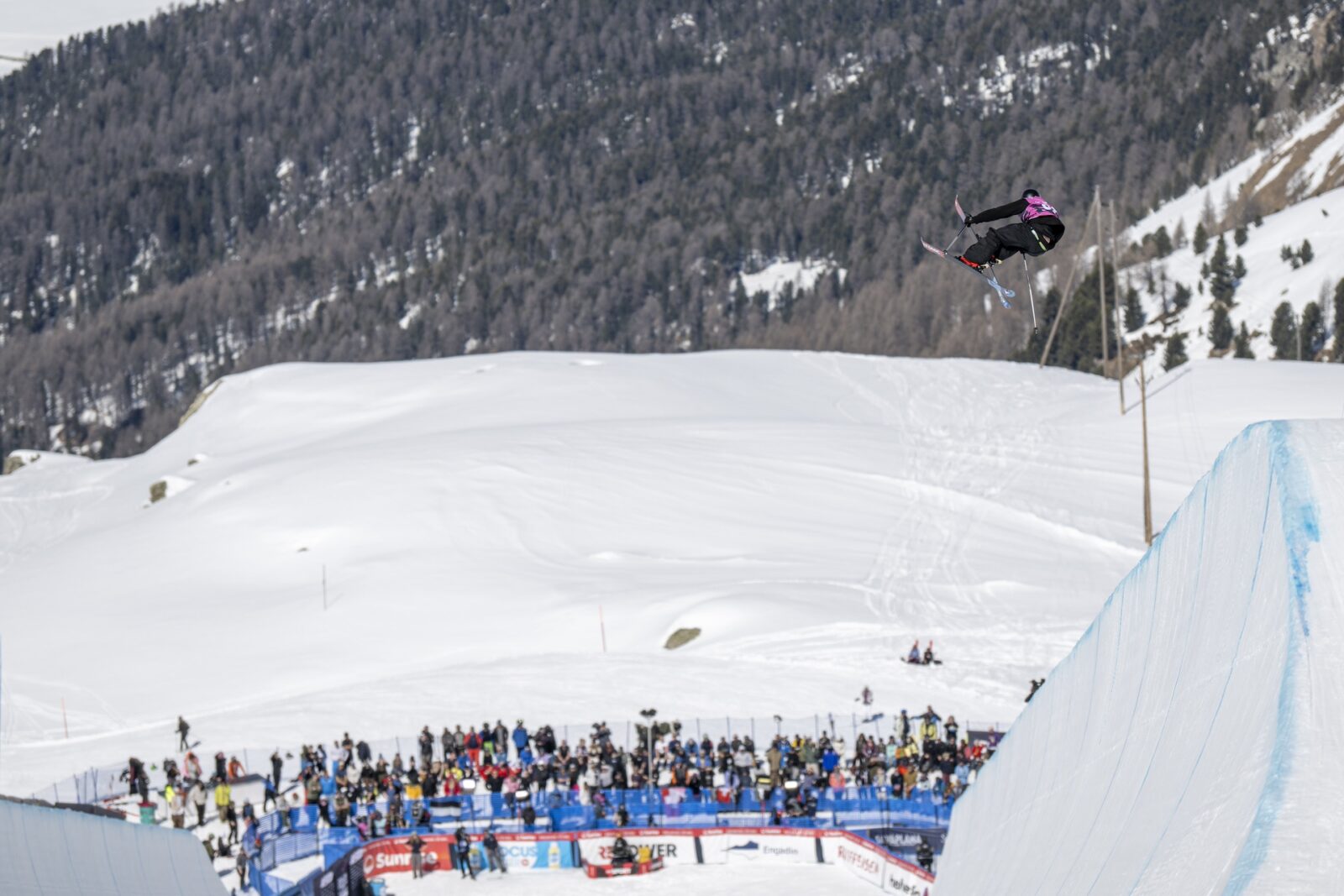
Fellow Kiwi, Finley Melville Ives was last to drop in having qualified first and – to put it simply – landed the best pipe run of all time. He goes absolutely enormous all the way down the pipe and rips each of his grabs like he has all the time in the world. He starts with a switch right double cork 1080 japan, into a huge left double cork 1620 mute that he holds for the majority of the rotation, into a left alley-oop double flatspin 1080 tweaked mute, into a switch left double cork 1080 double japan and finishing with a right double cork 1620 safety. He has five different double corks, each in a different direction, each with a unique well-defined grab. The run is of a different gravy and he went into a commanding lead with a 96.00.
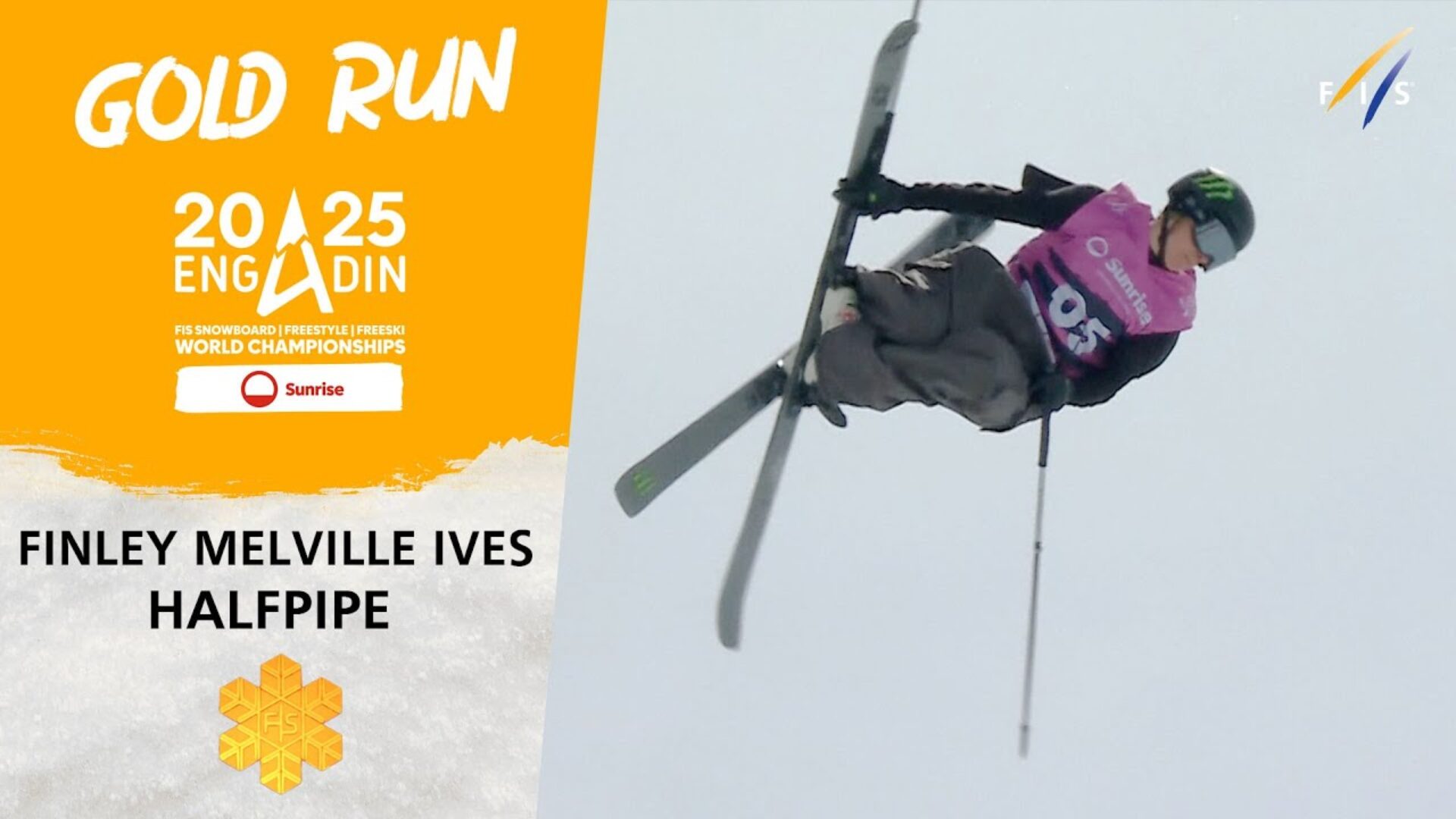
Having missed a grab and pulled out of his first run, Nick Goepper managed to shake up the podium, going into second place on run two. Back-to-back double cork 1620 cindys and his signature bone roll 900 blunt at the bottom was enough to go above Alex, despite some of Nick’s grabs not being perfect.
Alex could not respond and would make too many small errors throughout his second run to improve. This left Luke, the only man – or boy – on the outside of the podium looking in. After spending extra long psyching himself up at the top of the pipe, there was the air or something special about to go down. Just a few weeks previously, he had released a clip of the first ever switch alley-oop triple cork in a superpipe while training in Laax. But to try and immediately put it in the middle of a pipe run at the World Championships was unthinkable, wasn’t it?
Apparently not for the young Kiwi who, landing switch from his first switch 1080, pumped the transition and whipped into the first ever switch triple in competitive halfpipe skiing history. Gripping the mute and tucking up into a ball, Luke brought the rotation down to his feet and rode down the wall playing the snow piano – count it. The poor landing threw him off the rest of his run, but it almost did not matter – he had made history. He was mobbed by all the riders at the bottom of the pipe, cheered on by the crowd and the judges scored him a 42.00 – respect shown all round.
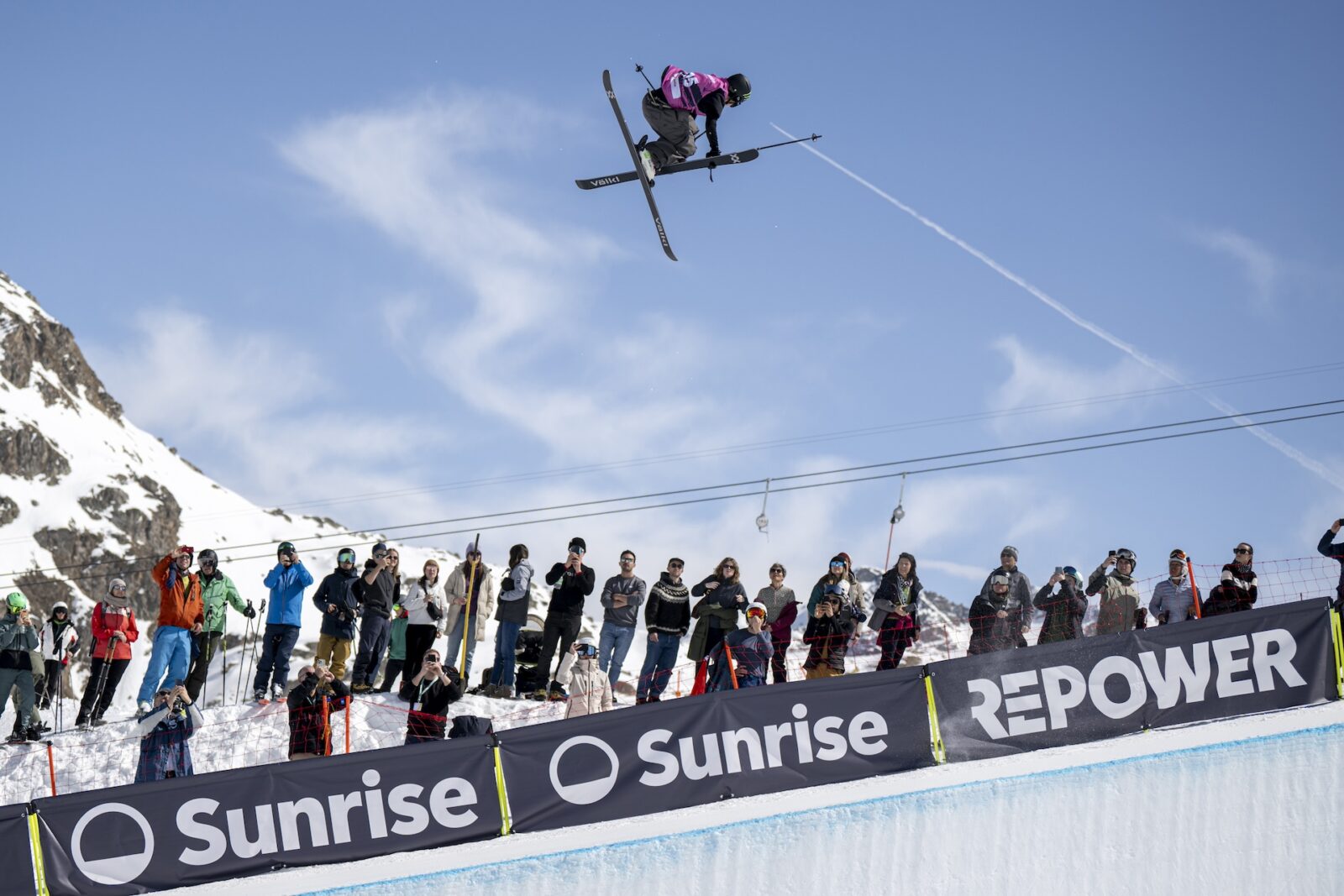
Having watched his good mate land a never-been-done trick in contests, Fin helped himself to an extra sweet victory lap, embracing Luke at the bottom of the pipe.
Maybe that orc was right when he said, “the age of Men is over, the time of young guns from New Zealand has come.” Misquoted, out of context Lord of the Rings aside, the future of pipe skiing is very much here and they are both teenagers from Wanaka.
Final Men’s Podium: Finley Melville Ives in first place, Nick Goepper in second place and Alex Ferreira in third.
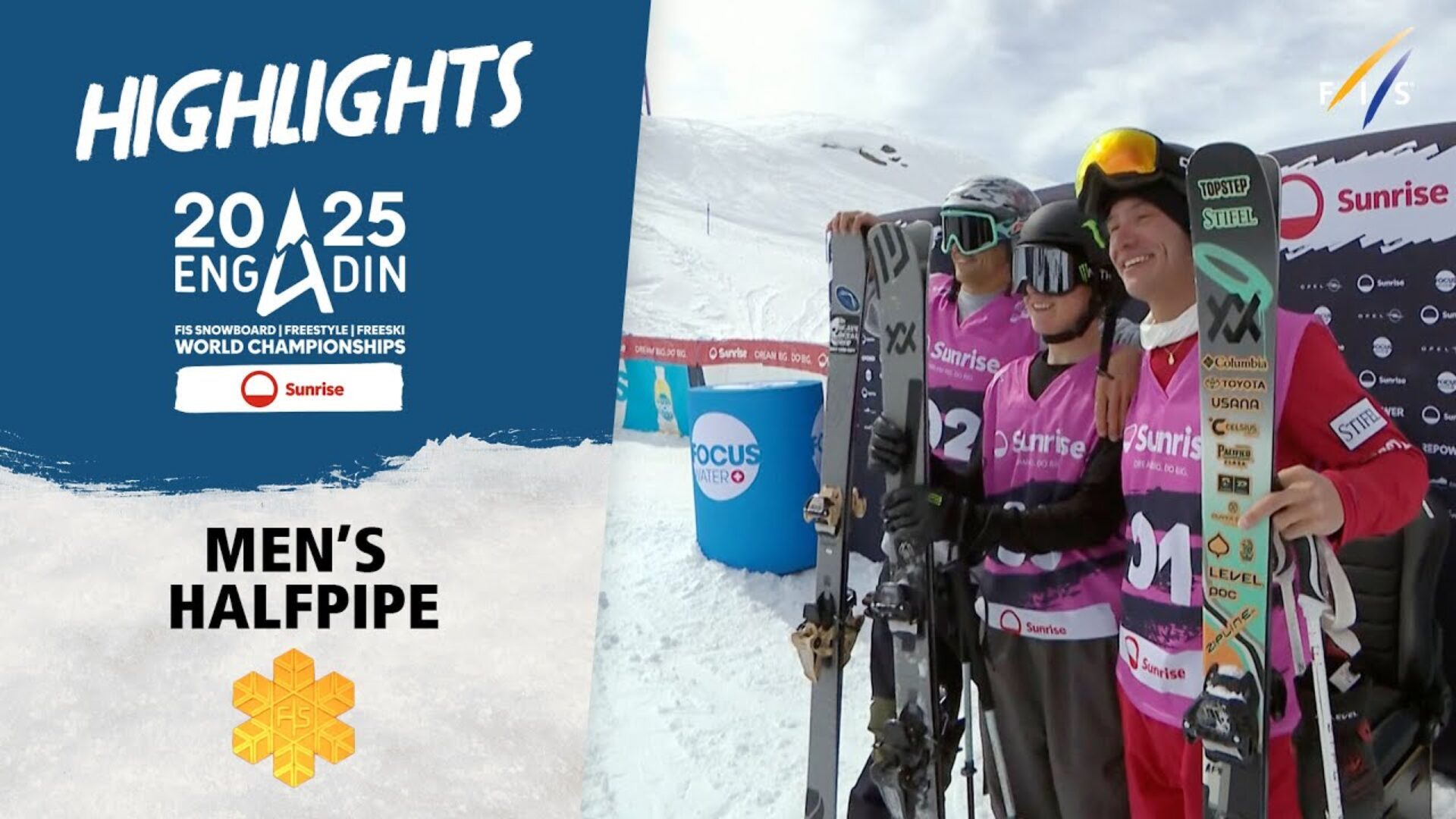
Men's Halfpipe World Championships Results
| Place | Name | Country | Score |
|---|---|---|---|
| 1st | Finley Melville Ives | NZL | 96.00 |
| 2nd | Nick Goepper | USA | 94.00 |
| 3rd | Alex Ferreira | USA | 92.50 |
| 4th | Luke Harrold | NZL | 90.75 |
| 5th | Hunter Hess | USA | 89.75 |
| 6th | Henry Sildaru | EST | 88.75 |
All results on FIS.com